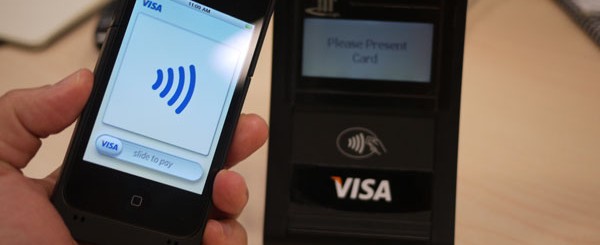
17 Mar Who will be the winner in mobile payments? Apple, Google, Samsung or …?
There seems to be a battle going on between Apple, Google and Samsung for the market of mobile payments. But who are the real winners of this battle? One of the tech giants? Or the credit card companies?
The rise of mobile payments dominates the news in the Fintech space since the launch of Apple Pay in October 2014. Apple was not the first tech giant that entered the market of mobile payments. Google launched the Google Wallet back in 2011. The volume of payment transactions through this wallet got a boost when Apple Pay launched.
Jumping into the mobile payment trend
Google recently acquired mobile company Softcard, implicating that its going after a larger piece of the pie. Two weeks ago, during the Mobile World Congress in Barcelona, Google launched Android Pay. It’s not a new app, but a platform that enables developers to integrate mobile payments in their apps. This mobile payment ecosystem runs on Android and is additive to Google Wallet.
Other tech companies are also jumping into the mobile payment trend. Samsung presented its new smartphone, the Samsung S6, in Barcelona and it also took the opportunity to officially launch Samsung Pay. In the weeks before Samsung acquired LoopPay to bolster the company’s efforts to compete with Apple Pay and other mobile payments technologies.
Paypal also attended the event in Barcelona to announce their purchase of Paydiant, a startup that provides technology for NFC enabled card readers. This new technology gives Paypal users and merchants the ability to accept mobile payments from Apple Pay and Google Wallet.
Tech giants are making all the money?
So it is all about tech giants making money out of the mobile payment trend? What one has to realize is that all tech companies need to partner up with the credit and debit card providers..Apple and Samsung already cooperate with MasterCard and VISA. Apple recently added American Express as a partner, so Apple now has the three biggest credit card companies on board.
VISA and MasterCard alone account for more than 80% of the total market in terms of total credit and debit card spending. If mobile payments cannibalize on existing plastic card revenues VISA and Mastercard will not really benefit from the rise in mobile payments. However, if mobile payments are to replace cash transactions on a large scale, things may work out very well for VISA and Mastercard.
Investing in technology to strengthen security
It should not surprise anyone that VISA and MasterCard are currently investing in technologies that tackle the most important hurdle – security - to mobile payments growth. You can think of technologies such as tokenization and biometrics to safeguard customer data on smartphones.
Visa announced in February that it will expand a program introduced last year to replace the well known 16-digit account number with a unique series of numbers called a token to be applied in online and mobile payments. During that same week, MasterCard announced a pilot program to thoroughly test biometrics such as facial and voice recognition as well as fingerprint matching to authenticate transactions.
When attending the Mobile World Congress I visited the booth of VISA. They showed some slides with interesting information. The number of active mobile point of sale users will reach $38 million by 2017, which equates to a 400% increase in 5 years. Consumers spend three times more using cards than cash. If this rule also applies to mobile, the potential benefits for credit card companies like VISA and MasterCard are huge.
Written by Carlien Roodink, partner Holland FinTech.

Google is working on a super-easy way to let you pay your bills | Flowing Economy
Posted at 01:32h, 25 March[…] that enables developers to integrate mobile payments in their apps. The launch of Android Pay matched the launch of Samsung Pay and Paypal’s announcement of the purchase of Paydiant, a startup that […]
Google is working on a project to let you receive and pay bills in your Gmail inbox - HollandFintech.com
Posted at 01:55h, 25 March[…] that enables developers to integrate mobile payments in their apps. The launch of Android Pay matched the launch of Samsung Pay and Paypal’s announcement of the purchase of Paydiant, a startup that […]
To be read/classified | Pearltrees
Posted at 15:58h, 10 June[…] Who will be the winner in mobile payments? Apple, Google, Samsung or …? - HollandFintech.com. […]